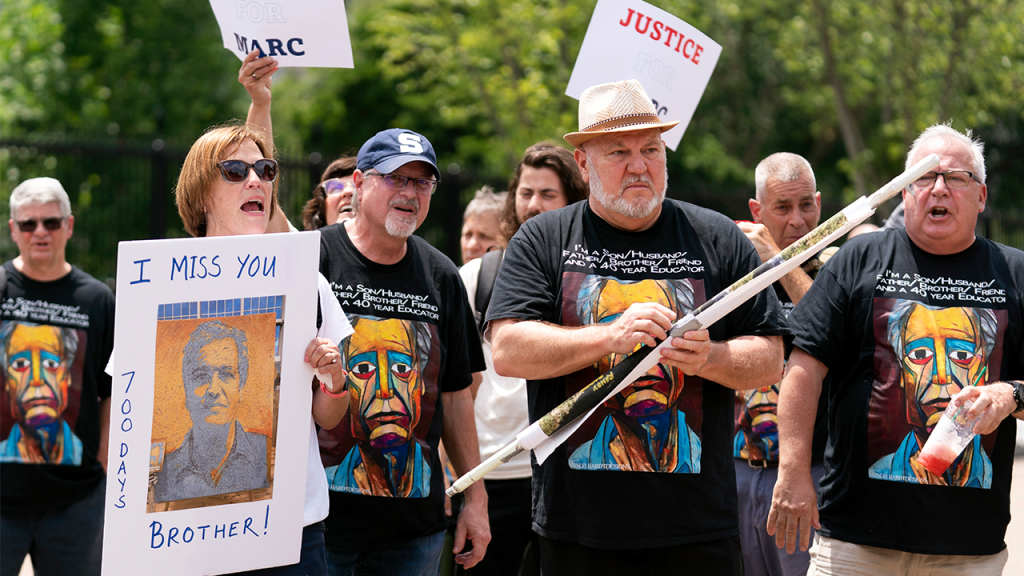Marc Fogel’s Wrongful Detention: A Case of Medical Marijuana and International Intrigue
Marc Fogel, an American history teacher, has been languishing in a Russian prison since August 2021, his life entangled in a complex web of drug charges, international diplomacy, and humanitarian concerns. The State Department’s recent designation of Fogel as wrongfully detained marks a significant turning point in his case, signaling a renewed commitment to securing his freedom. This recognition, however, comes after years of advocacy by his family and supporters, who have consistently maintained that the marijuana he possessed was for medical purposes, prescribed to alleviate chronic pain.
Fogel’s arrest at a Russian airport three years ago set in motion a protracted legal battle, culminating in a 14-year prison sentence. His case gained further prominence when he was notably excluded from a high-profile prisoner swap in August 2024, a deal that secured the release of several other Americans, including Wall Street Journal reporter Evan Gershkovich and corporate security executive Paul Whelan. This omission sparked outrage and renewed calls for the Biden administration to prioritize Fogel’s case. The family’s lawyers intensified their efforts, urging the government to classify Fogel as wrongfully detained, a designation that would elevate his case and trigger specific diplomatic protocols.
The State Department’s decision to designate Fogel as wrongfully detained is based on a careful evaluation of several factors. These include credible evidence of innocence, and whether the detention is primarily aimed at influencing U.S. policy or extracting concessions. In Fogel’s case, the State Department has acknowledged its long-standing efforts to secure his release, including attempts to include him in the August prisoner exchange. The Secretary’s determination that Fogel is wrongfully detained, made in October, underscores the government’s belief that his imprisonment is unjust and politically motivated.
The designation of "wrongfully detained" carries significant implications, shifting oversight of Fogel’s case to the Special Presidential Envoy for Hostage Affairs. This office, operating within the State Department, specializes in negotiating the release of hostages and Americans deemed wrongfully detained abroad. This shift signifies a more focused and strategic approach to securing Fogel’s freedom, leveraging the expertise and resources of a dedicated team. It also signals a higher level of government involvement and commitment to resolving his case.
Fogel’s family has expressed profound relief and gratitude for the State Department’s decision, viewing it as validation of their long-held belief in his unjust imprisonment. They see this designation as a crucial step towards bringing him home, providing renewed hope after years of uncertainty and anguish. With the full weight of the U.S. government now behind them, they are determined to pursue every avenue to ensure Fogel’s safe and swift return. This includes continued pressure on the administration, engagement with the Special Presidential Envoy for Hostage Affairs, and maintaining public awareness of his plight.
The case of Marc Fogel highlights the complex interplay of international law, diplomacy, and human rights. It underscores the challenges faced by Americans detained abroad, particularly when accused of crimes that may be viewed differently under varying legal systems. The designation of Fogel as wrongfully detained marks a crucial turning point in his case, offering a glimmer of hope for his eventual release and reunion with his family. However, the path ahead remains uncertain, requiring sustained diplomatic efforts and continued advocacy to navigate the complexities of international relations and secure his freedom. The coming months will be critical in determining whether the U.S. government can successfully leverage its diplomatic resources to bring Marc Fogel home.

